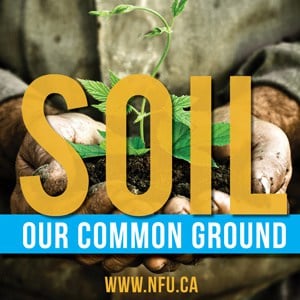
46th Annual Convention (2015)
Soil: Our Common Ground
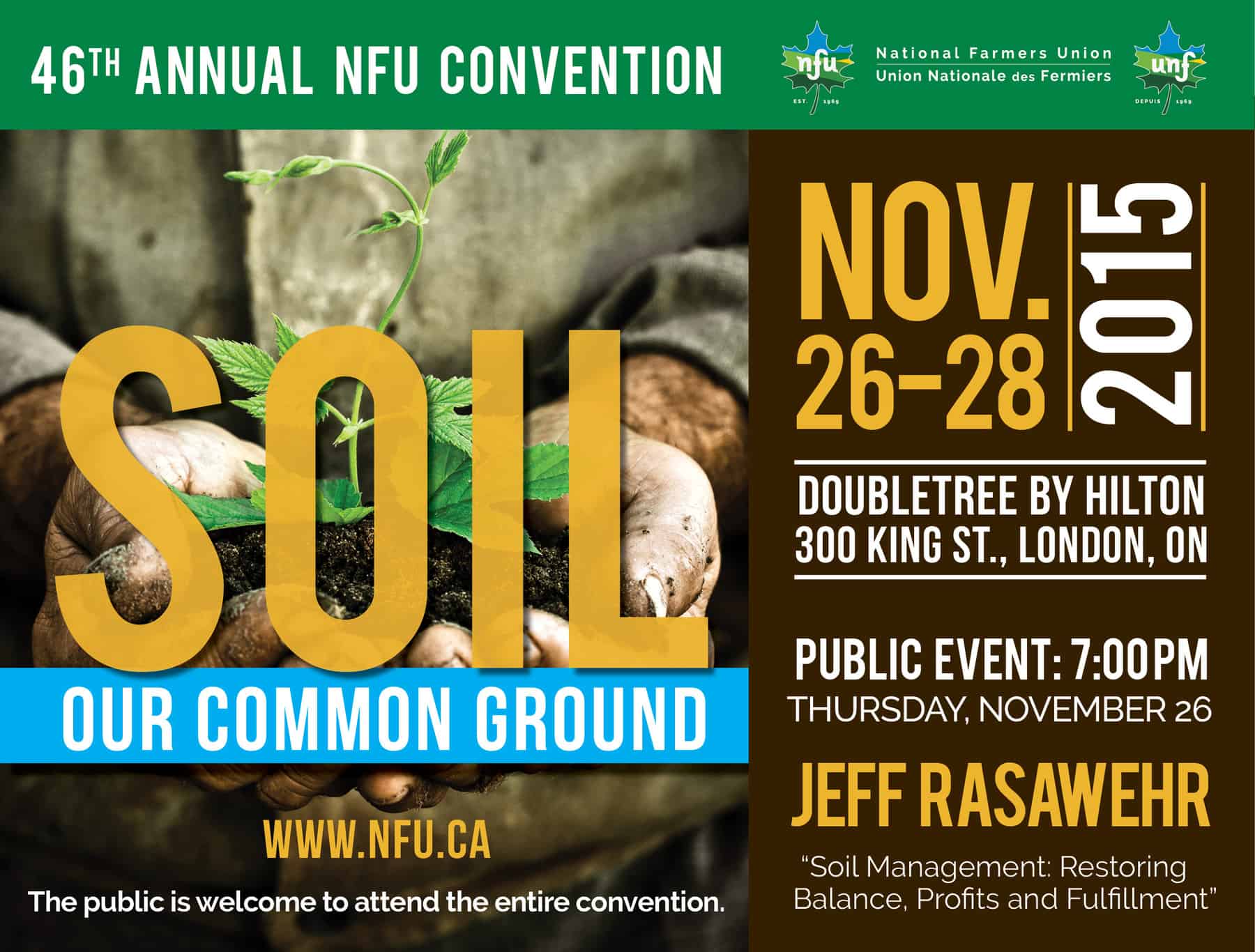
2015 NFU National Convention was held November 26 – 28 in London, Ontario. This year’s theme was “Soil: Our Common Ground.”
Healthy soil is the foundation of the food system. Soil filters our water, provides essential nutrients to our forests and crops, and helps regulate the Earth’s temperature and greenhouse gases. This year’s convention will highlight the need for policies and practices to protect our soil and our common ground.
Audio recordings now available
To order audio recording CDs of NFU Convention presentations and workshops, download the order form and mail it with your payment to Jack Getzlaff.
Program Highlights
Resolutions
At each annual Convention members bring forward new policy proposals in the form of resolutions for debate. Resolutions that pass are added to the NFU Policy Statement. See Points of Order, the NFU’s guide to writing resolutions for more information.
Pre-convention happenings:
Wednesday, November 25
4:00 PM – Historic Labatt Brewery Tour. Located a few blocks away from the convention hotel, the Brewhouse tour encompasses the history of beer brewing, and offers a view of today’s operation and a sample of selections.
8:00 PM – Film screening: The Symphony of the Soil. Symphony of the Soil is a feature length film that explores the complexity and mystery of soil. Filmed on four continents and sharing the voices of some of the world’s most highly esteemed soil scientists, farmers, and activists, the film portrays soil as a protagonist of our planetary story. Treating the soil right can help solve some of our most pressing environmental problems including climate change, dead zones, water scarcity and world hunger.
Thursday, November 26
9:00 AM – Workshop 1:
Soil — Agriculture’s Foundation
with Peter Eggers
Peter will share insights, research and techniques he has developed to promote healthy soil chemistry‐microbial dynamics. His innovations have dramatically improved the productivity of his grain farm in the Peace River, Alberta area.
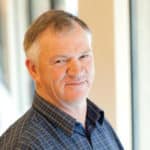
Peter Eggers grew up on a farm in Northern Germany, apprenticed agriculture and completed agricultural college in Germany. He immigrated in 1980 and started farming on his own in 1982, farming conventionally. He switched to zero-till in the 90s, and after taking a Holistic Management course, he began introducing long-term sustainable strategies that led to an intensive program of mineral-balancing the soils. These solutions enabled him to convert to certified organic. The farm now produces beef, lamb, grass seed, alfalfa seed, wheat and peas. View Peter Eggers’ workshop presentation.
10:30 AM – Workshop 2: The Back 40 of Bad Arguments
with Cory Ollikka and Karen Pedersen
Can you back up your opinion with a logical argument? Can you recognize a bad argument when you make one or hear one? Do you think that today’s political discussions lack sensible and logical reasoning? This workshop will explore the fundamentals of logical discourse to help participants become better debaters and advocates. View Cory and Karen’s workshop presentation
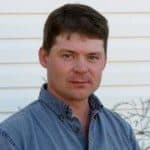
Cory Ollikka is a 4th generation farmer from Waskatenau, Alberta. He operates an organic grain and beef cattle farm as well as holding an off-farm job in Municipal Government. Cory has held numerous positions at the District, Regional and National levels of the NFU since 1986 and was the NFU’s 7th National President from 1998-2001. He has helped chair several NFU conventions.
Karen Pedersen is a 5th generation honey producer from Cut Knife, Saskatchewan. She farms collectively on a small family farm with her extended family. She has served as International Program Committee representative for Saskatchewan for the NFU and as La Via Campesina’s co-chair of the North American Women’s Commission. She was past Youth President and Women’s President. Over the years she has had the opportunity to farm in the United States, Denmark, Grenada, and New Zealand, increasing her understanding of global agriculture.
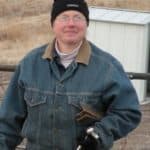
1:00 PM – Convention Call to Order
2:30 PM – Panel 1: The Policy
Soil Interface

Gary Martens is active in the ecological agricultural community as a small scale farmer, as a participant in ecological agricultural research and as a writer and speaker. His area of interest is farming systems with a special interest in sustainable crop rotations and weed management. Until he retired in the spring of 2014, he was a Senior Instructor in the Plant Science department at the University of Manitoba. View Gary Martens’ presentation
Doreen Stabinsky is professor of Global Environmental Politics at College of the Atlantic in Maine, and currently holds the first Zennström visiting professorship in Climate Change Leadership at Uppsala University, Sweden. She studies the impacts of climate change on agriculture and food security, adaptation and adaptation institutions under the UN Framework Convention on Climate Change (UNFCCC), and on the emerging issue of loss and damage from slow onset impacts of climate change. She participates in numerous UN agriculture and climate change-related initiatives, and has also represented non-government organizations in many UN intergovernmental forums. She is co-editor, with Stephen Brush, of the book Valuing local knowledge: indigenous people and intellectual property rights. Doreen will join us from Paris by Skype, where she is participating in the COP 21 Climate Change meetings. View Doreen Stabinsky’s presentation
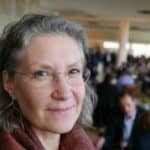

Blake Hall served as youth advisor for NFU Region 7 for two years before serving on the National Board of the NFU in 2013-2014. He and his wife have been direct marketing grass-finished beef and lamb, and pastured pork and eggs into Red Deer and Calgary since 2011. He currently manages Tamara Ranch in Central Alberta. Tamara Ranch has been holistically managed since 1991 and has been selected for a pilot project studying different grazing systems and their role in sequestering atmospheric carbon. View Blake Hall’s presentation.
Preview Screening – Islanders and the Land

Film-maker Don Kossick will show the trailer and lead a discussion of his latest video documentary. Islanders and the Land tells a story about the spirit of Prince Edward Island people and their resilience in the face of challenges to the land. On Prince Edward Island one sees the incursion of industrial agriculture and vertical integration controlling the cost of production, the sale of the product, and the desire for the land itself. Underneath all of this is the history of the land – the land of the Mi’kmaq people before settlers arrived, the expulsion of the Acadian communities, the struggle to break free from the lords of the land — and now the current mobilization to keep land in the hands of communities. As we face land grabbing and concentration across Canada, this story of Prince Edward Island offers how across the country we can learn and share with each other how to build a common resistance, how alternatives can be built to stop exploitation of rural communities, and how land can be preserved for the common good.
7:00 PM Public Event: Managing Your Soil: Restoring balance, profits and fulfillment
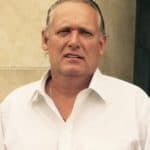
Michigan-based corn and soybean farmer Jeff Rasawehr has farmed for over 30 years. Growing the farm to 3000 acres using chemical industrial farming methods never quite “fit” for him. Realizing that something was seriously wrong, he began switching to a biological system. As he restores balance to his soil using cover crops and other innovations, his profits, fulfillment and satisfaction increase each year. Thanks to these improvements Jeff has reduced his farm to 900 acres, added a specialized beef product, and plans to decrease acres again this season. View Jeff Rasawehr’s presentation
Friday, November 27:
8:30 AM – Panel 2:
Supply Management— Threats, Opportunity and Challenges

Bruce Muirhead is a professor in the department of History and associate vice president, external research, at the University of Waterloo, having graduated many years ago with a PhD in History from York University in Toronto. He has written extensively on Canadian trade negotiations since the Second World War, as well as Canadian politics, diplomacy and economic development. His most recent work has focused on Canadian agricultural policy in general, and dairy supply management more specifically, through a project funded by the Norwegian Research Council. View Bruce Muirhead’s presentation
Patrick Groenewegen is the Plant and Process Manager, as well as a co-owner of Limestone Organic Creamery in Elginburg, Ontario. Now 27, he grew up on the family dairy farm, which has been certified organic for 12 years. Patrick is also a certified Cream and Milk Grader. In 2012 the Groenewegens set up Limestone Creamery to do on-farm processing for the local Kingston-area market, as part of a pilot project initiated by Dairy Farmers of Ontario. View Patrick Groenewegen’s presentation.
Scott Graham has served on Egg Farmers of Ontario (EFO) Board since 1997, and was elected as Chair in 2010. As a Director, he represents egg farmers in the County of Perth, the Regional Municipality of Waterloo and the City of Waterloo. He has served on several Board Committees including Executive, Egg Industry Advisory, Finance, Pullet, Public Affairs and Egg Farmers of Canada (EFC) alternate. EFO is an independent, self-governing association funded entirely by egg and pullet farmers. Scott is a second generation egg farmer from St. Mary’s, Ontario, and is proud to now continue farming into the next generation with his son. View Scott Graham’s presentation.
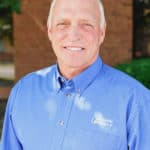
10:30 a.m The Grain Sector: Open Market or Open Season?
with Bill Gehl
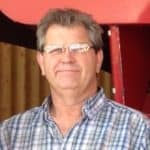
Bill Gehl farms with his wife, Joanne, and brother and sister-in-law, 10 kilometres north of Regina. His parents, Pete and Edie, were founding members of the NFU. He is a third generation family grain farmer growing wheat, barley, flax, canola and pulses. Bill is the past chair of the Canadian Wheat Board Alliance, a member of Friends of CWB, and is the current chairman of the Saskatchewan Wheat Development Commission. He is also a journeyman sheet metal worker and a member of SMWIA Local 296. View Bill Gehl’s presentation.
1:30 p.m. Panel 3
NFU Youth Investigate: Critical issues for new farmers
The 2015 National New Farmer Coalition Survey shows that young people are facing barriers such as access to land, knowledge and equipment. The survey is a starting point to seek solutions that will enable the next generation to farm.
NFU Youth is a network of young Canadians committed to building a food system that is economically viable for family farms, socially just and locally focused. The NFU Youth consists not only of young farmers but also their urban counterparts who are concerned with the future of food and agriculture in Canada and around the world. The NFU Youth work to promote Food Sovereignty in Canada through their own unique political analysis, educational opportunities and partnerships with other organizations that share similar objectives
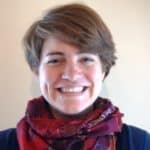
NFU Youth speaker, Julia Laforge, is a PhD student in Geography at the University of Manitoba. Her M.A. research focused on Saskatchewan farmers who migrated out of drought areas in 1930s. She then worked for Just Food and USC-Canada in Ottawa before academia called her back to start a PhD in Winnipeg. Julia is currently researching how farmers access ‘alternative’ agriculture knowledge.In 2014, she began a case study comparing ways that new farmers learn and share knowledge in Eastern Ontario and Southern Manitoba.
Shannon Jones has owned and operated Broadfork Farm, a small-scale, organic mixed vegetable, herb, and cut-flower farm with her partner Bryan since 2011. As a first-generation farmer, Shannon started her farming career through apprenticing with experienced and successful farmers. Shannon and Bryan started their farm business on leased land before purchasing their own farm in Cumberland County, Nova Scotia. They make their living by selling at a farmers’ market, to restaurants, and health food stores.

Saturday, November 28:
10:20 AM – Panel 4
Preventing runoff problems – via regulations or voluntary best practices?

Reg Phelan will speak about the Prince Edward Island experience, focussing on the impact of the industrial push to produce tobacco and french fries, the work of the NFU Ecology group and PEI’s Lands Protection Act. Reg is an organic farmer growing vegetables, wheat, cattle and blueberries. He and wife live in a 150-year-old farmhouse built by great-grandparents. Reg has written a thesis on PEI land issues called Islanders and the Land. View Reg Phelan’s presentation.
Mari Veliz has worked at the Ausable Bayfield Conservation Authority (ABCA) since 2000. The ABCA is a watershed management agency with a 2400 km2 area of jurisdiction along the south-east shore of Lake Huron. Ms. Veliz has supervised the water quality and bio-monitoring program since 2002. As the Healthy Watersheds Supervisor, she also works with communities and agencies to undertake and implement watershed projects and plans. Currently, she is working with local, provincial and federal partners to evaluate agricultural best management practices. Ms. Veliz has a Bachelor of Environmental Studies from the University of Waterloo and a Masters of Science from the University of Alberta. View Mari Veliz’s presentation.

Craig Merkley works in the Conservation Services Unit of the Upper Thames River Conservation Authority. He coordinates research and demonstration projects related to agricultural best management practices. The majority of his work has been with individual farmers but has also worked with small watershed groups such as the Upper Avon River Conservation Club. Most recently he coordinated the North kettle Watershed Best Management Practices Evaluation Project. The aim of the project was to assess how structural BMPs hold up over time, make recommendations and transfer the lessons learned. Craig is a graduate of the University of Guelph and lives in Stratford, Ontario. (Craig Merkley’s presentation is not available)
1:45 p.m. Panel 5 – Top Soil Builders
NFU members share how they are putting “Soil: Our Common Ground” into practice on their own farms.
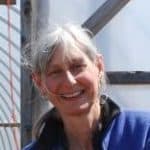
Alyson Chisholm did not grow up on a farm, but got experience working on farms in Canada and overseas. She eventually joined a group of people in Abbotsford, BC to form a co-op that bought and ran an organic vegetable farm where. for almost 10 years, she ran her own business selling salad greens and eggs. After meeting Will Pedersen, she moved to New Brunswick to run their own farm in McKees Mills. Today, Alyson and Will run a 100-member CSA, sell their vegetables at a farmer’s market and raise goats for meat and milk. Each spring, Alyson teaches an organic gardening course in Moncton to anyone interested in learning how to get started in organic vegetable growing. View Alyson Chisholm’s presentation
Ken Laing grew up on a mixed farm near St.Mary’s, ON. After a stint in engineering he returned to farming with a degree in horticulture. Since 1979 he has been farming with his wife Martha near St.Thomas, ON. They operate a profitable, productive and sustainable horse powered CSA[community shared agriculture] vegetable operation for 240 families. They have had the challenge of building topsoil in 10 acres of partially reclaimed gravel pit and regenerating land that been rented out and had too many corn crops and too much tillage. Cover crops and crop rotations involving forages have been used for many years but only in the last few years have they ventured into organic no-till planting strategies for some of their vegetable and grain crops. View Ken Laing’s presentaton: Part 1 and Part 2.

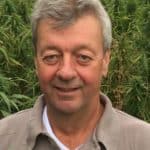
Larry Marshall and his family run a 3000 acre organic farm in northern Saskatchewan, specializing in industrial hemp. Larry has been involved in international organic exchanges with Costa Rica and Cuba, learning new methods of using micro-organisms for feed additives, inoculating compost, and making biological controls for weeds, diseases and pests.
Peter Eggers immigrated from Germany in 1980 and started farming in Canada in 1982. He farmed conventionally, then switched to zero-till in the 90s. After taking a Holistic Management course he began introducing long-term sustainable strategies that led to an intensive program of mineral-balancing the soils. These solutions enabled him to convert to the farm to certified organic, which now produces beef, lamb, grass seed, alfalfa seed, wheat and peas. View Peter Eggers’ presentation.
